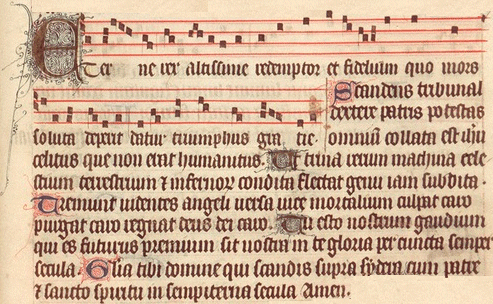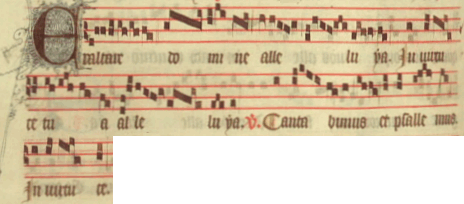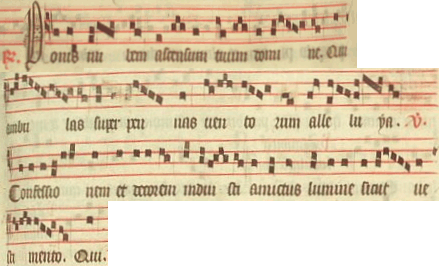READINGS: ASCENSION SATURDAY VI

Invitatory Psalm & BACK


Psalm 106: Hebrew English Then BACK
ὁ θεὸς ἀναγεννήσας ἡμᾶς εἰς ἐλπίδα ζῶσαν - Ἁλληλουϊά. — δι' ἀναστάσεως Ἰησοῦ Χριστοῦ ἐκ νεκρῶν - Ἁλληλουϊά.
Even Years: Acts Acts 23:12-35 12 γενομένης δὲ ἡμέρας ποιήσαντες συστροφὴν οἱ ἰουδαῖοι ἀνεθεμάτισαν ἑαυτοὺς λέγοντες μήτε φαγεῖν μήτε πίειν ἕως οὗ ἀποκτείνωσιν τὸν παῦλον. 13 ἦσαν δὲ πλείους τεσσεράκοντα οἱ ταύτην τὴν συνωμοσίαν ποιησάμενοι: 14 οἵτινες προσελθόντες τοῖς ἀρχιερεῦσιν καὶ τοῖς πρεσβυτέροις εἶπαν, ἀναθέματι ἀνεθεματίσαμεν ἑαυτοὺς μηδενὸς γεύσασθαι ἕως οὗ ἀποκτείνωμεν τὸν παῦλον. 15 νῦν οὖν ὑμεῖς ἐμφανίσατε τῷ χιλιάρχῳ σὺν τῷ συνεδρίῳ ὅπως καταγάγῃ αὐτὸν εἰς ὑμᾶς ὡς μέλλοντας διαγινώσκειν ἀκριβέστερον τὰ περὶ αὐτοῦ: ἡμεῖς δὲ πρὸ τοῦ ἐγγίσαι αὐτὸν ἕτοιμοί ἐσμεν τοῦ ἀνελεῖν αὐτόν. 16 ἀκούσας δὲ ὁ υἱὸς τῆς ἀδελφῆς παύλου τὴν ἐνέδραν παραγενόμενος καὶ εἰσελθὼν εἰς τὴν παρεμβολὴν ἀπήγγειλεν τῷ παύλῳ. 17 προσκαλεσάμενος δὲ ὁ παῦλος ἕνα τῶν ἑκατονταρχῶν ἔφη, τὸν νεανίαν τοῦτον ἀπάγαγε πρὸς τὸν χιλίαρχον, ἔχει γὰρ ἀπαγγεῖλαί τι αὐτῷ. 18 ὁ μὲν οὖν παραλαβὼν αὐτὸν ἤγαγεν πρὸς τὸν χιλίαρχον καὶ φησίν, ὁ δέσμιος παῦλος προσκαλεσάμενός με ἠρώτησεν τοῦτον τὸν νεανίσκον ἀγαγεῖν πρὸς σέ, ἔχοντά τι λαλῆσαί σοι. 19 ἐπιλαβόμενος δὲ τῆς χειρὸς αὐτοῦ ὁ χιλίαρχος καὶ ἀναχωρήσας κατ' ἰδίαν ἐπυνθάνετο, τί ἐστιν ὃ ἔχεις ἀπαγγεῖλαί μοι; 20 εἶπεν δὲ ὅτι οἱ ἰουδαῖοι συνέθεντο τοῦ ἐρωτῆσαί σε ὅπως αὔριον τὸν παῦλον καταγάγῃς εἰς τὸ συνέδριον ὡς μέλλον τι ἀκριβέστερον πυνθάνεσθαι περὶ αὐτοῦ. 21 σὺ οὖν μὴ πεισθῇς αὐτοῖς: ἐνεδρεύουσιν γὰρ αὐτὸν ἐξ αὐτῶν ἄνδρες πλείους τεσσεράκοντα, οἵτινες ἀνεθεμάτισαν ἑαυτοὺς μήτε φαγεῖν μήτε πιεῖν ἕως οὗ ἀνέλωσιν αὐτόν, καὶ νῦν εἰσιν ἕτοιμοι προσδεχόμενοι τὴν ἀπὸ σοῦ ἐπαγγελίαν. ὁ μὲν οὖν χιλίαρχος ἀπέλυσε τὸν νεανίσκον παραγγείλας μηδενὶ ἐκλαλῆσαι ὅτι ταῦτα ἐνεφάνισας πρός με. 23 καὶ προσκαλεσάμενος δύο [τινὰς] τῶν ἑκατονταρχῶν εἶπεν, ἑτοιμάσατε στρατιώτας διακοσίους ὅπως πορευθῶσιν ἕως καισαρείας, καὶ ἱππεῖς ἑβδομήκοντα καὶ δεξιολάβους διακοσίους, ἀπὸ τρίτης ὥρας τῆς νυκτός, 24 κτήνη τε παραστῆσαι ἵνα ἐπιβιβάσαντες τὸν παῦλον διασώσωσι πρὸς φήλικα τὸν ἡγεμόνα, 25 γράψας ἐπιστολὴν ἔχουσαν τὸν τύπον τοῦτον: 26 κλαύδιος λυσίας τῷ κρατίστῳ ἡγεμόνι φήλικι χαίρειν. 27 τὸν ἄνδρα τοῦτον συλλημφθέντα ὑπὸ τῶν ἰουδαίων καὶ μέλλοντα ἀναιρεῖσθαι ὑπ' αὐτῶν ἐπιστὰς σὺν τῷ στρατεύματι ἐξειλάμην, μαθὼν ὅτι ῥωμαῖός ἐστιν: 28 βουλόμενός τε ἐπιγνῶναι τὴν αἰτίαν δι' ἣν ἐνεκάλουν αὐτῷ κατήγαγον εἰς τὸ συνέδριον αὐτῶν: 29 ὃν εὗρον ἐγκαλούμενον περὶ ζητημάτων τοῦ νόμου αὐτῶν, μηδὲν δὲ ἄξιον θανάτου ἢ δεσμῶν ἔχοντα ἔγκλημα. 30 μηνυθείσης δέ μοι ἐπιβουλῆς εἰς τὸν ἄνδρα ἔσεσθαι, ἐξαυτῆς ἔπεμψα πρὸς σέ, παραγγείλας καὶ τοῖς κατηγόροις λέγειν [τὰ] πρὸς αὐτὸν ἐπὶ σοῦ. 31 οἱ μὲν οὖν στρατιῶται κατὰ τὸ διατεταγμένον αὐτοῖς ἀναλαβόντες τὸν παῦλον ἤγαγον διὰ νυκτὸς εἰς τὴν ἀντιπατρίδα: 32 τῇ δὲ ἐπαύριον ἐάσαντες τοὺς ἱππεῖς ἀπέρχεσθαι σὺν αὐτῷ ὑπέστρεψαν εἰς τὴν παρεμβολήν: 33 οἵτινες εἰσελθόντες εἰς τὴν καισάρειαν καὶ ἀναδόντες τὴν ἐπιστολὴν τῷ ἡγεμόνι παρέστησαν καὶ τὸν παῦλον αὐτῷ. 34 ἀναγνοὺς δὲ καὶ ἐπερωτήσας ἐκ ποίας ἐπαρχείας ἐστὶν καὶ πυθόμενος ὅτι ἀπὸ κιλικίας, 35 διακούσομαί σου, ἔφη, ὅταν καὶ οἱ κατήγοροί σου παραγένωνται: κελεύσας ἐν τῷ πραιτωρίῳ τοῦ ἡρῴδου φυλάσσεσθαι αὐτόν. Odd Years: John 3:11-17 ὅτι
αὕτη ἐστὶν ἡ ἀγγελία
ἣν ἠκούσατε ἀπ'
ἀρχῆς,
|
Even Years: Leo the Great, Treatise 74:5 (CCL 138 A, 459-461)
Odd Years: Augustine of Hippo, Treatise 5 on 1 John, 11-13 (SC 75, 266-271)
|
| Prayer |

